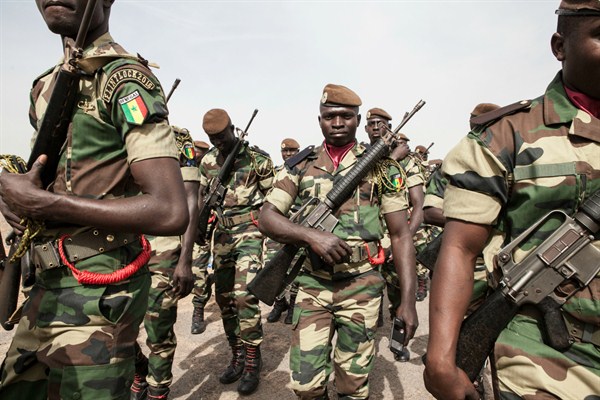Islamist extremist groups that were once confined to slivers of territory in the most marginalized areas of West Africa are increasingly expanding their operational footprint in the region. Whether it is Boko Haram, which has rebranded itself as the self-proclaimed Islamic State’s West African affiliate, or the myriad al-Qaida offshoots that occupied northern Mali following a coup in 2012, insurgent operations are no longer confined by these groups’ countries of origin.
The Islamic State’s West Africa Province, as Boko Haram now calls itself, has spread beyond its base in northeastern Nigeria into neighboring Cameroon, Chad and Niger, which all have borders near the dwindling waters of Lake Chad. Al-Qaida’s various branches in Mali, meanwhile, first expanded their presence from the country’s desert north into its more populous center, before encroaching last year on neighboring Burkina Faso and Cote d’Ivoire, which had been relatively free of attacks from Islamist extremists.
Beyond these groups’ stated goal to replace secular governments with their own absolute Islamic rule, there is a more practical reason for their expansion across borders in West Africa: retribution for these countries’ direct or tacit involvement in Western-backed counterterrorism operations. Attacks in Burkina Faso’s capital, Ouagadougou, in January 2016 and a March 2016 assault on Cote d’Ivoire’s tourist-popular Grand Bassam beachfront were both claimed by al-Qaida in the Islamic Maghreb, or AQIM, as retribution for French-led efforts to defeat them.

